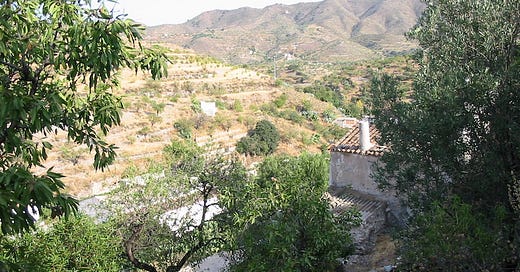How I Found my House in the Magical Spanish Mountains
I started my Spanish adventure in 1997, just as Tony Blair ended 18 years of Conservative rule with the slogan ‘Things Can Only Get Better’...
I started my Spanish adventure in 1997, just as Tony Blair ended 18 years of Conservative rule with the slogan ‘Things Can Only Get Better’. I was one of a number of young BBC journalists helping with the count on Election Night, but soon after fled the BBC on a trip to Mojácar in Spain, on the pretext of finding a cheap house to buy. I didn’t seriously…
Keep reading with a 7-day free trial
Subscribe to Advantages of Age to keep reading this post and get 7 days of free access to the full post archives.




